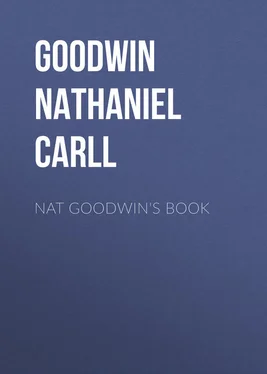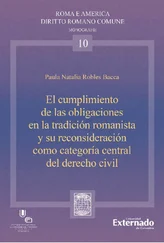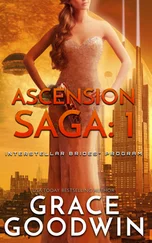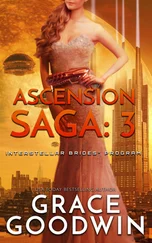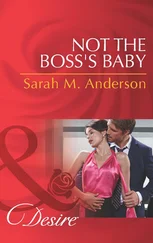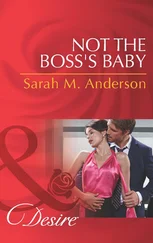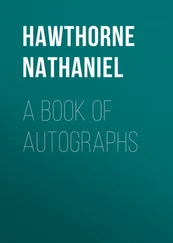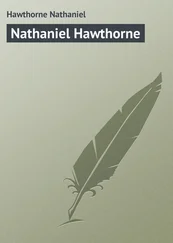Nathaniel Goodwin - Nat Goodwin's Book
Здесь есть возможность читать онлайн «Nathaniel Goodwin - Nat Goodwin's Book» — ознакомительный отрывок электронной книги совершенно бесплатно, а после прочтения отрывка купить полную версию. В некоторых случаях можно слушать аудио, скачать через торрент в формате fb2 и присутствует краткое содержание. Издательство: Иностранный паблик, Жанр: foreign_antique, foreign_prose, на английском языке. Описание произведения, (предисловие) а так же отзывы посетителей доступны на портале библиотеки ЛибКат.
- Название:Nat Goodwin's Book
- Автор:
- Издательство:Иностранный паблик
- Жанр:
- Год:неизвестен
- ISBN:нет данных
- Рейтинг книги:5 / 5. Голосов: 1
-
Избранное:Добавить в избранное
- Отзывы:
-
Ваша оценка:
- 100
- 1
- 2
- 3
- 4
- 5
Nat Goodwin's Book: краткое содержание, описание и аннотация
Предлагаем к чтению аннотацию, описание, краткое содержание или предисловие (зависит от того, что написал сам автор книги «Nat Goodwin's Book»). Если вы не нашли необходимую информацию о книге — напишите в комментариях, мы постараемся отыскать её.
Nat Goodwin's Book — читать онлайн ознакомительный отрывок
Ниже представлен текст книги, разбитый по страницам. Система сохранения места последней прочитанной страницы, позволяет с удобством читать онлайн бесплатно книгу «Nat Goodwin's Book», без необходимости каждый раз заново искать на чём Вы остановились. Поставьте закладку, и сможете в любой момент перейти на страницу, на которой закончили чтение.
Интервал:
Закладка:
Night usually found me at the back door of the Boston Theatre or Boston Museum importuning the Captain of the Supers to be allowed to carry a spear. The major portion of my time was given to affairs theatrical until finally my employers decided to dispense with my valuable services, and much to my delight I was cast adrift.
My mother, who always had a great fondness for the stage and was always seeking the society of those connected with it, made the acquaintance of Mr. and Mrs. Charles R. Thorne, Sr., the father and mother of Charles, Edwin and William Thorne, and persuaded them to take a suite of rooms at our house in Boston, situated at the corner of Bulfinch and Howard Streets, directly opposite the famous Mrs. Fisher's theatrical boarding-house. The Thornes were very delightful old people, and for hours I would sit and listen to them discussing the favorites of olden times, dating back to the advent of the Keans. Finally, they persuaded their son Edwin to come and live with us, and for the first time I found myself in the divine atmosphere of the players' life. Edwin was the leading man at the Howard Athenaeum, playing stock pieces and supporting travelling stars.
The Thornes were a great delight to me, as they had the entry to all the playhouses in Boston, and it was my joy to accompany dear Mrs. Thorne to every "first night."
Edwin Thorne finally left our house and became leading man at the Providence Opera House, under the management of William Henderson. I would often visit Providence, go behind the scenes and hold the book while Thorne was committing his various parts to memory. It is unnecessary to state that I was always enthralled at these golden opportunities. After repeated requests Thorne was persuaded to use his influence in procuring me an engagement. Finally I was offered the part of Sir George Hounslow in the old melodrama, "The Bottle." I fortified myself with a blonde wig, never dreaming of using my own blonde locks. I thought every actor should wear a wig. From Thorne's wardrobe I selected clothing altogether too large for my slim proportions. I required inspiration and atmosphere and decided that in the wardrobe of the illustrious player I should find it. Bedecked in those ill-fitting garments I stood at the wings on the opening night waiting for my cue.
I was possessed of so much assurance at rehearsals that little attention had been paid to me regarding the details of stage business, the stage manager taking all for granted. I was the bad young man of the play, seeking to bring about the dishonor of the soubrette. I was supposed to have endeavored to embrace her down the road, she to have eluded my advances and broken away, rushing onto the stage, I following. Naturally she did not rehearse all she intended to do that evening, and while I was quietly talking with her in the entrance, the cue was given and she uttered a fearful shriek! I didn't know what had happened and looked around for the cause. Then I found she was in the center of the stage wildly beckoning me to come on and finish the scene that was supposed to have started down the road. Somebody shoved me on. The orchestra played chilly music suggestive of my base intentions. This took every line out of my head, and I simply stood there and gasped! Not a sound could I ejaculate! The young lady contemplated me for a moment and cried, "You shall not!" Then she rushed off, leaving me transfixed. From each side of the stage I could hear, "Come off! Come off!" but I seemed paralyzed and could not stir. At last the lights went out, the scene was changed and when I came to I found myself in the property room with two or three gentlemen in red flannel shirts throwing water into my face. They left me for an instant, and I ran out of the stage door in all my makeup and Thorne's wardrobe (which he afterwards told me I failed to return). I waited until the train came through for Boston and boarded it, utterly oblivious of the sensation I was creating among the passengers by my painted face and penciled eyebrows. I jumped into a cab upon my arrival at the Boston station, drove home to my parents and threw myself into my mother's arms crying, "I cannot act! Get me a position in a shoe store!"
I was heartbroken for many weeks and firmly resolved never to become an actor; but gradually my mother, who always believed in my hidden histrionic powers, instilled some courage into my soul, I yielded to her sympathy and advice and determined to try once more.
Through my mother's influence my father bowed at last to what seemed the inevitable and consented to permit me to prepare myself for the stage, exacting from me a promise, however, that I would devote not less than five hours a day to my studies. Accordingly I was sent to Wyzeman Marshall, an old-school actor of some repute during the reign of Edwin Forrest, who undertook my training. I spent many happy hours with this charming old gentleman as he devoted most of his (and my) time to anecdotes and stories of the past. He taught me but little, apart from the scanning of Shakespeare, which he thoroughly instilled into my mind, so the few months which I spent under his tutelage did me much good. I had no thought of being a comedian and devoted all of my time to the study of serious rôles, from Douglas to the bloody Thane of Cawdor, and committed all those parts to memory.
Fortunately for me at this time I became acquainted with Stuart Robson.
Chapter III
STUART ROBSON
My meeting with Stuart Robson was brought about by the influence of Joseph Bradford, a clever playwright of the day. He had heard my imitations of actors and pronounced upon them favorably, "not only for their accuracy," as he put it, but the methods I employed reminded him of a dear friend of his who had passed away some years before – Robert Craig, to whom I was told I bore a striking resemblance.
Robert Craig was a clever player, playwright and wonderful mimic. He was for years leading comedian at Mrs. John Drew's Arch Street Theatre, Philadelphia. Had he lived he would certainly have made dramatic history for himself. I have only a faint recollection of him, but Bradford often told me of his many wonderful gifts and I have many times wished that I had been born earlier or he later.
Bradford was an extraordinary person. A most incompetent actor, which he often with great regret admitted, but one of the greatest geniuses that I have ever met – a master in all matters pertaining to the drama and literature of the theatre. Had he lived I feel certain that he would have become the Pinero of the American stage. Alas, he was given to conviviality and lived only for his friends.
He possessed a splendid physique and was gifted with fine conversational power. His fund of humor was excelled by none. He was liberal to a fault, devoid of egotism, with always a kindly word for those with whom he came in contact and possessed a brain as pyrotechnical as Paine's fireworks. You can imagine his influence upon those who were fortunate enough to be his associates. His knowledge of painting, drama, music, sculpture, literature, poetry, in fact all the arts, seemed unlimited. As a critic he had a style peculiarly his own, equalled only by Hazlitt, Lamb, Lewes and a few others. He was a graduate of Annapolis and left there with many honors. Very often we would sit in his rooms and he would read me his prose and poetry, which he never allowed to be published but which I think was as nearly unique as that of Edgar Allan Poe, to whom he bore a striking resemblance. He was a devotee at the shrine of Poe and often regretted the untimely end of America's greatest lyrical genius. Little did he imagine that his end would be the same. Burns, Poe and Bradford were the victims of their mastering passion – the loving cup.
Through his kindly interest and guidance I was enabled to secure my first real engagement and make the acquaintance of the best Shakespearean clown of modern times and one of the cleverest of modern comedians as well, Stuart Robson.
Читать дальшеИнтервал:
Закладка:
Похожие книги на «Nat Goodwin's Book»
Представляем Вашему вниманию похожие книги на «Nat Goodwin's Book» списком для выбора. Мы отобрали схожую по названию и смыслу литературу в надежде предоставить читателям больше вариантов отыскать новые, интересные, ещё непрочитанные произведения.
Обсуждение, отзывы о книге «Nat Goodwin's Book» и просто собственные мнения читателей. Оставьте ваши комментарии, напишите, что Вы думаете о произведении, его смысле или главных героях. Укажите что конкретно понравилось, а что нет, и почему Вы так считаете.
